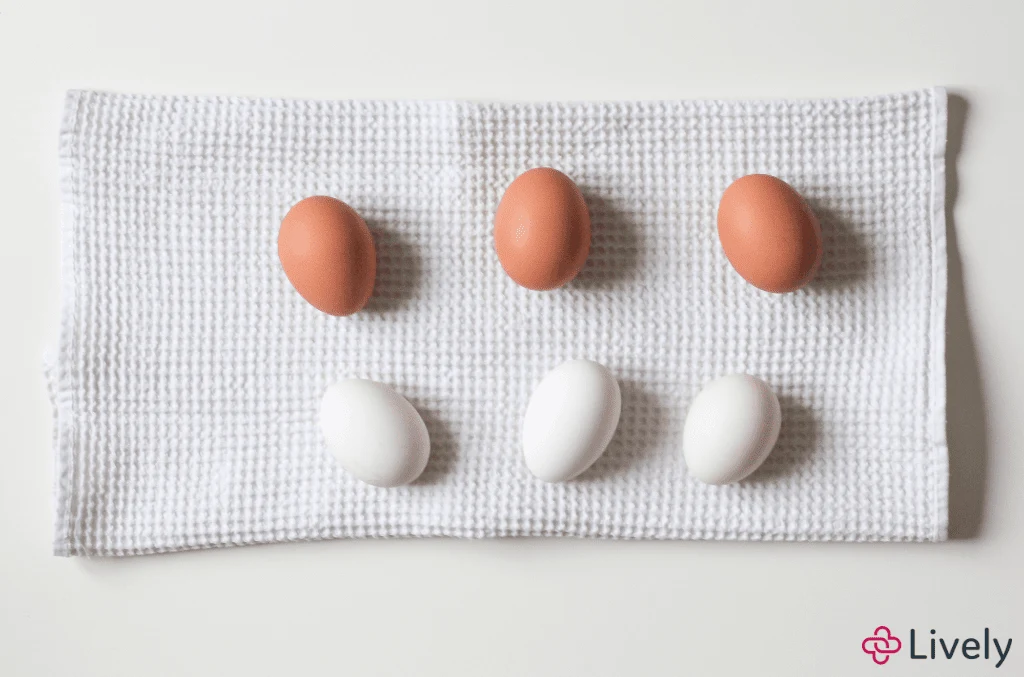The Lively Blog
SIGN UP FOR OUR
Newsletter
Stay up to date on the latest news delivered straight to your inbox
What's the Difference Between a Flexible Spending Account (FSA) and a Health Reimbursement Arrangement (HRA)?
Vicky Warren · September 9, 2022 · 6 min read

Let’s face it, healthcare is expensive. Good thing for us, there are several types of accounts to ease the blow to our pocketbooks. In this post we’ll compare two types of healthcare savings options, Flexible Spending Accounts (FSAs) and Health Reimbursement Arrangements (HRAs).
How each can help you save on healthcare costs
Both FSAs and HRAs are employer-sponsored (and employer-owned), tax-advantaged accounts that can be used to pay for out-of-pocket medical expenses. Their differences lay in which expenses are eligible for reimbursement, who can contribute, and just how much control the employer has over how they function.
What is an FSA?
A Flexible Spending Account (FSA) is an employer offered, tax-exempt account. Both employer and employee can contribute and the funds you deposit are deducted from your paycheck pre-tax.
You can use your FSA funds to pay for eligible medical, dental and vision expenses that aren’t covered by your healthcare plan. Thousands of medical costs, from products to procedures, are covered under FSAs, including everyday items like bandaids, sunscreen and more.
Using your FSA account for healthcare related costs will help you save money. Additionally, if you don’t use all of your contributions by the end of the year, your employer can choose to offer you the option to either a 2 ½ month grace period or a carryover, the amount of which is set each year by the IRS, in which to use your balance.
FSA benefits
Flexible Spending Accounts offer several advantages, here are a few of the benefits.
They’re not tied to any specific health insurance plan. Flexible Spending Accounts can be paired with any kind of health insurance or no health insurance at all. This flexibility gives employees the ultimate choice in how they handle their health insurance. Your entire annual contribution is available on day one. The entire amount you’ve pledged to contribute to your FSA for the year is available at the start of the benefit year (or shortly after the first contribution is made). So if you’ve pledged to contribute $2,000 to your FSA for the year, the entire $2,000 is available to use at any time even if you haven’t made all of the contributions yet. Another cool feature of FSAs is, if you leave your company before the year is over, and you’ve used more than you’ve contributed, you don’t have to pay the money back.
Set it up and don’t worry. FSA accounts are usually set up during open enrollment periods. Once the paperwork is complete, contributions are made automatically making saving for healthcare easy.
Be sure to re-enroll each year, as most FSA’s don’t renew automatically.
Take advantage of the tax breaks. FSA contributions made by both employees and employers are tax-free. Be sure to use your entire contribution each year, as FSA’s are a “use it or lose it” option. Some FSA’s have a grace period, and some allow you to carry over a predetermined amount set by the IRS each year, but not all. Review your specific plan carefully so you don’t lose your money.
Purchase thousands of health-related items with pre-tax dollars. Eligibility Scanner, a feature on the Lively mobile app, also makes it easy for you to stay on top of what’s eligible. Scan a product’s barcode with the feature to instantaneously verify whether or not it’s eligible to purchase and/or reimburse with your healthcare FSA.
FSAs are simple to use. Many FSAs offer debit cards, and others require reimbursement forms to be filled out. Either way, using pre-tax dollars to help pay for health care makes a little paperwork worth it.
What is an HRA?
An HRA is a completely employer-funded account used to reimburse for health expenses. There are many types of HRAs, each with their own rules, but they all function as a reimbursement vehicle where the employees pay for medical expenses, either with a debit card or pay-out-of-pocket first and submit said expenses for reimbursement.
Like FSAs, contributions employers make to HRAs are tax-free. The IRS allows for a wide range of qualified medical expenses to be reimbursed from an HRA but employers can choose to further restrict the types of expenses that are eligible. Be sure to check your HRA plan documents to determine exactly the types of expenses for which you can reimburse. While HRAs are not health insurance, they can be used alongside your plan to help offset your individual costs.
HRA benefits
Health Reimbursement Accounts offer some great benefits as well, here’s a few to consider.
Employers can make unlimited contributions to: Individual Coverage HRAs, Integrated or Standard HRAs, and Retiree Only. While some health care spending accounts have strict contribution limits, these types of HRAs do not. Though only employers can contribute to HRAs, knowing they have no preset limits is nice. If your employer offers a Qualified Small Employer HRA (QSEHRA) or an Excepted Benefit HRA (EBHRA), these do have IRS-imposed annual contribution limits.
Self-care is encouraged through health spending. Because HRA funds don’t roll over and you stand to lose them if you leave the company, are fired, laid off or retire, some argue that HRAs promote self-care. Since HRA funds cannot be rolled over or kept indefinitely, it’s a good idea to use the benefit. The hope is you’ll schedule those appointments you’ve been putting off and seek the care you need rather than saving the money. Note: your employer can choose to roll over funds to the following plan year or make them available through COBRA.
Fewer restrictions for eligibility. Many healthcare saving options such as Healthcare Flexible Spending Accounts (HFSA) and Healthcare Savings Accounts (HSA) have several eligibility requirements. HRAs do not have as many restrictions and should be considered if you find yourself ineligible for the other options.
HRAs work with many types of insurance plans. Another reason HRAs make sense for many is that they can be used with more types of insurance plans. The Affordable Care Act (ACA) allows HRAs to be offered as long as they are integrated with a group health plan, which opens up more ways for employers to offer this benefit.
FSAs and HRAs both offer many benefits and can help you set aside money to use for the inevitable health care costs we all face. Take some time to compare and contrast your specific plans to decide what type of healthcare savings account makes the most sense for you.
If you are an employer who is interested in offering your employees a range of benefit options, including HSAs, FSAs, HRAs, and other wellness benefits accounts, reach out to us today.

Benefits
2026 Maximum HSA Contribution Limits
Lively · February 1, 2025 · 3 min read
For 2026, the HSA contribution limits are $4,400 for individual coverage and $8,750 for family coverage. These limits increased from 2025, when the caps were $4,300 and $8,550. If you’re age 55 or older, you can still contribute an additional $1,000 as a catch-up contribution.

Benefits
What is the Difference Between a Flexible Spending Account and a Health Savings Account?
Lauren Hargrave · February 9, 2024 · 12 min read
A Health Savings Account (HSA) and Healthcare Flexible Spending Account (FSA) provide up to 30% savings on out-of-pocket healthcare expenses. That’s good news. Except you can’t contribute to an HSA and Healthcare FSA at the same time. So what if your employer offers both benefits? How do you choose which account type is best for you? Let’s explore the advantages of each to help you decide which wins in HSA vs FSA.

Health Savings Accounts
Ways Health Savings Account Matching Benefits Employers
Lauren Hargrave · October 13, 2023 · 7 min read
Employers need employees to adopt and engage with their benefits and one way to encourage employees to adopt and contribute to (i.e. engage with) an HSA, is for employers to match employees’ contributions.
SIGN UP FOR OUR
Newsletter
Stay up to date on the latest news delivered straight to your inbox
